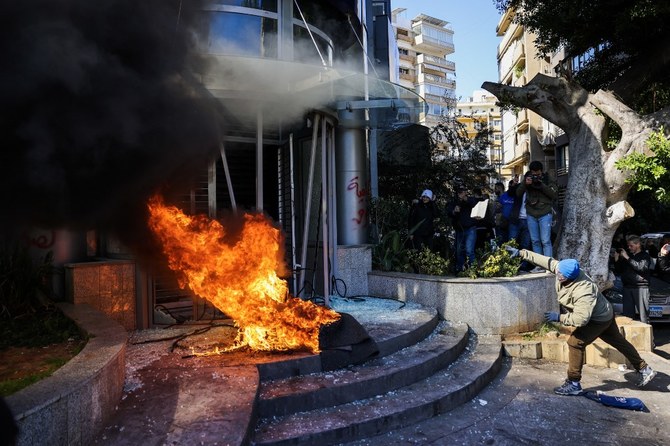Dr. Dania Koleila Khatib
Sheikh Ahmed Al-Rifai, a fierce critic of Hezbollah, was found dead on Saturday in the north of Lebanon. Almost immediately, Hezbollah’s opponents accused the group of carrying out the murder. Army intelligence and internal security officers quickly conducted an investigation and arrested the culprits. The ringleader is a relative of the slain sheikh, with whom he had long-standing animosity.
This incident shows how tense the situation in the country has become. If it were not for the army and security forces’ quick action, the murder of Al-Rifai would have unfolded into a sectarian clash. This time, the army saved the day. The question is, for how long can it keep the situation under control? The obvious answer is not for long. The situation in Lebanon is not sustainable. The tension is very high and the only agent that is preventing total collapse is the army. The commander of the army has been on a fundraising spree to feed his soldiers. Last year, Qatar donated $60 million to prevent the disintegration of the armed forces, a scenario that would definitely lead to chaos. But what next? When this money is depleted, who, if anyone, will be the next donor to pay the salaries of the army? The situation is not sustainable. Lebanon needs a proper state with functioning institutions.
If we rewind what happened in the north, assuming that the army and security forces were dysfunctional and did not mobilize and conduct the investigation, what would have happened? For sure, there would have been a sectarian clash. Nevertheless, the army was quick to dispel the fallacies that Hezbollah killed the sheikh and to calm the situation. However, even after the investigation concluded that a cousin of the victim was the assailant and it was a purely personal issue, the sectarian tension did not totally dissipate. Several people posted on Twitter an old picture of the culprit and his son, who was also his accomplice in the murder, showing them participating in a Hezbollah event commemorating the death of Imad Mughniyeh, the high-ranking official and former mastermind of its operations, trying to indirectly link the group to the murder.
Another question mark is raised over the murder regarding the loose control over arms in the country. The army found in the home of the assailant a warehouse of weapons. Hezbollah may be armed, but it is not the only armed entity in the country, and the animosity toward it is increasing. The different groups are blaming Hezbollah for the current deplorable situation. For example, the exchange rate has gone from 1,500 Lebanese pounds to the US dollar to 80,000 at the time of writing. This time, the army was able to prevent a widespread clash, but this will not necessarily be the case later on. The army is low on resources and it relies on the resourcefulness of its commander, while banking on the loyalty of its soldiers and officers. At the same time, the army is being attacked by the political class. Gebran Bassil, the son-in-law of the last president, who is frustrated at seeing his hopes of succeeding his father-in-law fading away, is launching a fierce campaign against the army because its commander is the most favored candidate among the international community, as well as domestically. Hence, the country is edging toward an internal confrontation.
Every day, there is a clash of some sort. The army has so far been able to contain and localize those clashes, but it is exhausted and, if those clashes spread and the army finds itself unable to contain them, the country will plunge into chaos – a chaos that might lead to another civil war. Lebanon can either conduct reforms and have a state with functioning institutions or face chaos. However, chaos in Lebanon, which would lead to internal alignments and could result in a civil war, would be very destabilizing to the region. It could also be destabilizing for the EU. Already, people are risking their lives and leaving the country illegally in the hope of reaching Europe. It is not even in Israel’s interest to have instability in Lebanon. Though some pundits advocate that the best way to get rid of Hezbollah is to let the country break down on its head, Israel does not need another Gaza on its northern frontier.
The EU has created a framework for sanctions on political actors but it has not activated it. Member states should act quickly and start applying pressure on the different political figures to push them to end the deadlock, elect a president and put in place a government that is committed to reform, rather than looking after the different political parties’ interests and clientelist networks. The clock is ticking. The Al-Rifai episode should be a wake-up call for Hezbollah. Its position is also not sustainable anymore. Its hegemony over the country is no longer tolerated. It cannot maintain its maximalist positions. It needs to compromise and understand that its safety valve should be the state, as only a strong state can keep everyone in their rightful place. A weak state will definitely allow Hezbollah to expand, but it also allows its opponents to confront it.
Even though a civil war is not in anyone’s interest, this does not mean it will not happen. People do not go to war because it is in their interest to do so, they do so because they are threatened. At the moment, Hezbollah feels threatened by the increasing internal opposition and the anti-Hezbollah camp is threatened by the former’s hegemony. This is why the different parties could be dragged into a war. Hence, there is no substitute for reforms and for having a state that will provide services to the people and ensure law and order.







